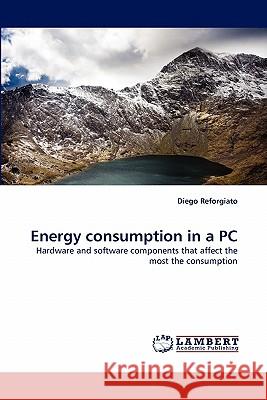Energy consumption in a PC » książka
Energy consumption in a PC
ISBN-13: 9783843383585 / Angielski / Miękka / 2010 / 84 str.
The field of Information and Communication Technology (ICT) has been historically and fairly considered as a key factor for developing innovative control systems and services, which can help in reducing and monitoring third-party energy wastes and in achieving high levels of efficiency. In such context, different projects considered and/or developed networked technologies in order to build smart environments (e.g., houses, buildings) that are also energy-aware. At present, the role of ICT is becoming of paramount importance in addressing better energy efficiency in the energy production and distribution sector, as well as in fostering energy-awareness in all aspects of production and services. It would be odd that ICT would not apply the same concepts to itself.
The field of Information and Communication Technology (ICT) has been historically and fairly considered as a key factor for developing innovative control systems and services, which can help in reducing and monitoring third-party energy wastes and in achieving high levels of efficiency. In such context, different projects considered and/or developed networked technologies in order to build smart environments (e.g., houses, buildings) that are also energy-aware. At present, the role of ICT is becoming of paramount importance in addressing better energy efficiency in the energy production and distribution sector, as well as in fostering energy-awareness in all aspects of production and services. It would be odd that ICT would not apply the same concepts to itself.











